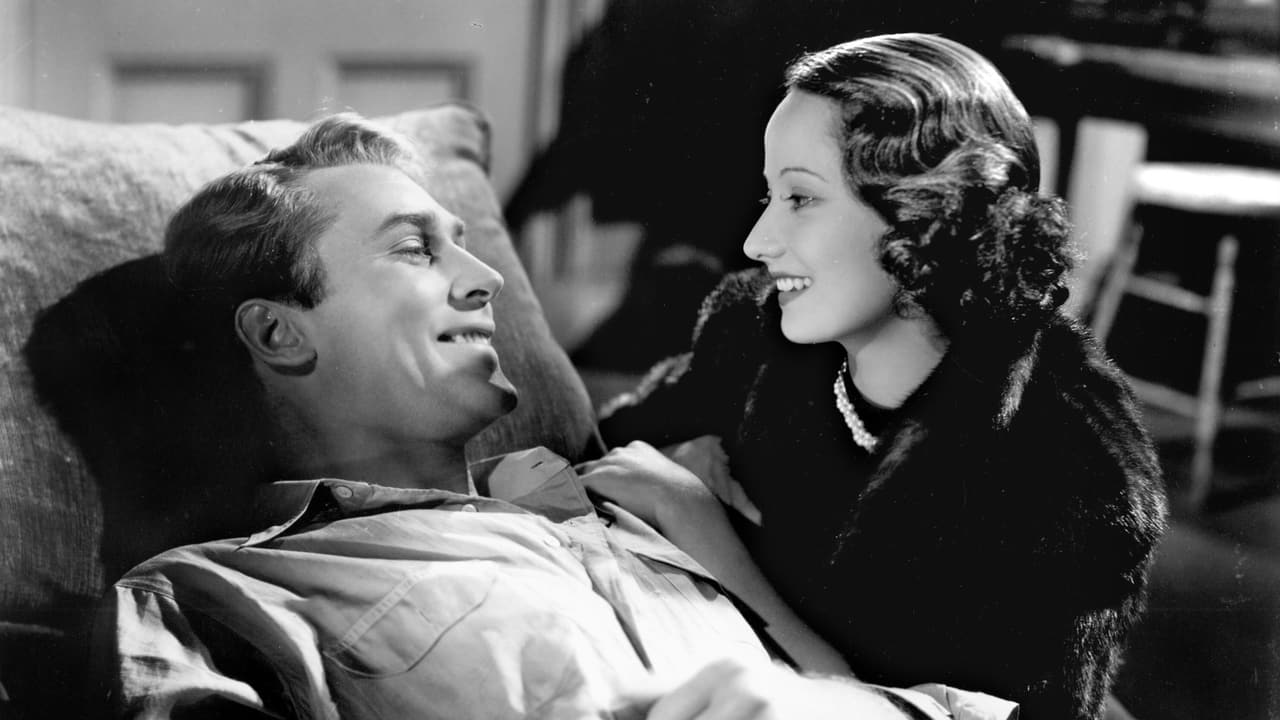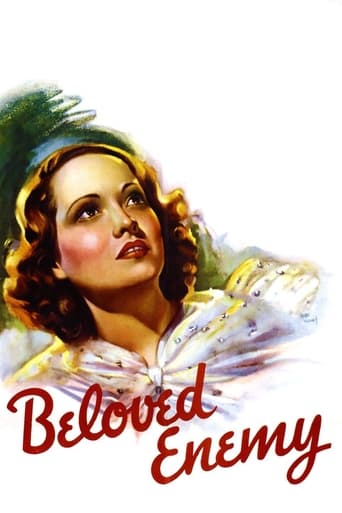

Don't expect the true story of what was going on in Dublin and most of Ireland during the early 1920's; That has been sanitized out as to not "offend" the movie viewers over there. What is present is an acceptable love story with some of the political intrigue intact, but it is basic background to the typical romantic struggles of total opposites whose love affair seems to be doomed from the start.Brian Donlevy plays a fictional character, possibly a composite of various Irish rebels who eluded the police and military and stirred up enough trouble to keep this rebellion going on for decades. When Merle Oberon arrives with her British ambassador father (Henry Stephenson) in Dublin, she accidentally encounters Donlevy and after some initial unpleasantness from him because of her station in life, they can't help but admit that they are attracted to each other. She is trapped inside his hide-out during a raid and after being taken back to London, convinces her father to set up a meeting with the leaders of the rebellion. Members of Donlevy's team (particularly Donald Crisp and Jerome Cowan) are against a "treaty", and this leads to Donlevy accused of being a traitor.While female roles in movies like this are usually meant to be merely "window dressing", Oberon adds some spark into her character which makes her much more interesting. She tosses out enough of her own ideals about the rebellion, and this makes her more compelling as a part of a serious plot. This is where the film succeeds as its structure isn't about the actual rebellion or the reasons behind it, but cause and effect and looming tragedy when one member of a rebel team seems to be drifting away from his priorities. Solid acting, outstanding production design and sparking direction by H.C. Potter makes up for the lack of fact that was already covered in plays and films like "Juno and the Paycock" and "The Informer".In order to enjoy this film it helps to know a little something about this period of history, something which has recurred between Ireland and "the mother country" a lot over the future decades. On the level of a doomed love story, it works best, with Oberon and Aherne a gorgeous pair whom you root for up to the moving finale.
... View MoreIn the "love-against-the-backdrop-of" genre, BELOVED ENEMY occupies a rather high position because of the intelligence with which an extremely unlikely romantic relationship is handled. Merle Oberon, the daughter of a British bigwig (Henry Stephenson), falls in love with an Irish rebel leader (Brian Aherne). But not only does her love for him not turn her against her own people, she even rats on him to the British military, only to be hugely relieved when he escapes from their ambush. Then she has the gall to visit him and admit her betrayal! This is truly a case of love conquers all. On one level this film is a plea for peace from a woman's point of view. Movies with pleas for peace were not uncommon in the mid- to-late Thirties. Needless to say, this production is a pure Hollywood gloss on the realities of the 1921 Irish Civil War, but at least the opening credits admit clearly that the story is "legend based on fact" with fictitious characters. When the going gets a bit heavy, we have those stunning physical specimens of Oberon and Aherne (their surnames even sound like poetry together) to feast our eyes upon. In close-up profile they both look exquisite. Oberon was a fine actress, much underrated. She had her limitations, but here, as in many other films, not only turned in a creditable and convincing performance but was a pleasure to watch as she did so. Aherne, as finely carved a block of wood that ever took human form, never quite comes to life. He is somehow not all there.
... View MoreFilm loosely based on Irish revolutionary Michael Collins. They added romance to this 1936 picture, and even though it has been fictionalized, it's still a very good picture.The chemistry between revolutionary Brian Aherne and Merle Oberon, the daughter of a British diplomat is just fine here. They meet by chance when Oberon accompanies her diplomatic father to Ireland for him to see what is going on.There are some fine supporting performances here, especially by Henry Stephenson, as the diplomat, David Niven as an attaché and another gem role for Donald Crisp, as a militant revolutionary.This love story brings out the futility of war and the famous line in Charles Dickens' "A Tale of Two Cities," in that every revolution breeds fanatics. How true.
... View MoreThis 1936 film was the only movie about the Anglo-Irish War of Liberation (1916 - 1922) that centered on a character based on Michael Collins prior to the 1996 movie called MICHAEL COLLINS. Why it took so long to outwardly make a major film about the Irish hero is a matter of mystery to me. The best reason is that Hollywood did not wish to jeopardize English and British Empire sales of their films by painting a positive image of the man who gave them such a stunning black eye and won independence (or technically semi-independence) for Eire in 1922. Hollywood would be willing to show a great Irish leader destroyed by a sex scandal (the abysmal 1939 film PARNELL), but that leader failed. This 1935 film, BELOVED ENEMY, follows the general outlines of the events of 1921-22. Collins, directing intelligence against the British forces, destroyed the Black and Tans and managed to make mincemeat of British operations throughout the provinces of Ireland (except for Belfast and it's norther neighbors). Prime Minister Lloyd George and his advisers (including Winston Churchill) decided to have a peace treaty - but the negotiations were extremely difficult for all concerned. Lloyd George wanted to get the British forces disengaged, because the nation's prestige was badly shaken by it's increased defeat. The Irish negotiators (led by Arthur Griffiths and Michael Collins) were to try to get full independence if they could. However, Collins was put in charge of the negotiation team only because his one rival, Eamon de Valera, refused to go. This has remained a matter of controversy to this day, as to whether de Valera did this out of distrust of the British or as a cynical way of shafting Collins who would be blamed for the resulting treaty. Gumming up the work further were the Northern Irish Protestants (Ulstermen) led by Edward Carson and James Craig. They too were split (Carson wanted all of Ireland to remain in the United Kingdom, as Great Britain was officially known in 1922; Craig just wanted to protect the six northern Protestant provinces from being part of the Catholic Ireland envisioned by Collins and de Valera).The resulting treaty basically satisfied nobody - and still doesn't. Eire was created as a semi-Independent part of the United Kingdon (in a sense it achieved Parnell's long dead "Home Rule" parliament system). Northern Ireland got it's independence as a semi-independent section with it's capital at Stormont near Belfast (Craig would become it's first Prime Minister; Carson was disgusted by the decision and never accepted it). Griffiths died of natural causes a few weeks after the treaty was signed. Collins had to face the anger of de Valera, who rejected the result. Within two months Collins was assassinated by anti-treaty Irish, and a Civil War began that lasted a year (and was bloodier than the fight against the British). Eventually de Valera would be elected President of Eire. In 1949 he formally removed Eire from the United Kingdom. The southern Irish state has remained independent ever since.The story was changed in BELOVED ENEMY. Based on a story that during the long negotiations Collins met and romanced an English aristocratic lady, the Collins character Dennis Reardon (Brian Ahearn) meets and falls in love with aristocratic Helen Drummond (Merle Oberon), whose father is involved on the English negotiation team. When the treaty is presented to the world, and does not give the full independence that the Southern Irish expected, Reardon is denounced as a traitor. His closest friend O'Roarke (Jerome Cowan) decides to punish him for his treason by shooting him when he is riding in an open car (as Collins was killed). The only difference is that here Reardon (although wounded) lives to return to his aristocratic lover.The film was well produced and acted, so despite trivializing a true tragedy by giving it a happy ending I will give it an 8 out of 10.
... View More